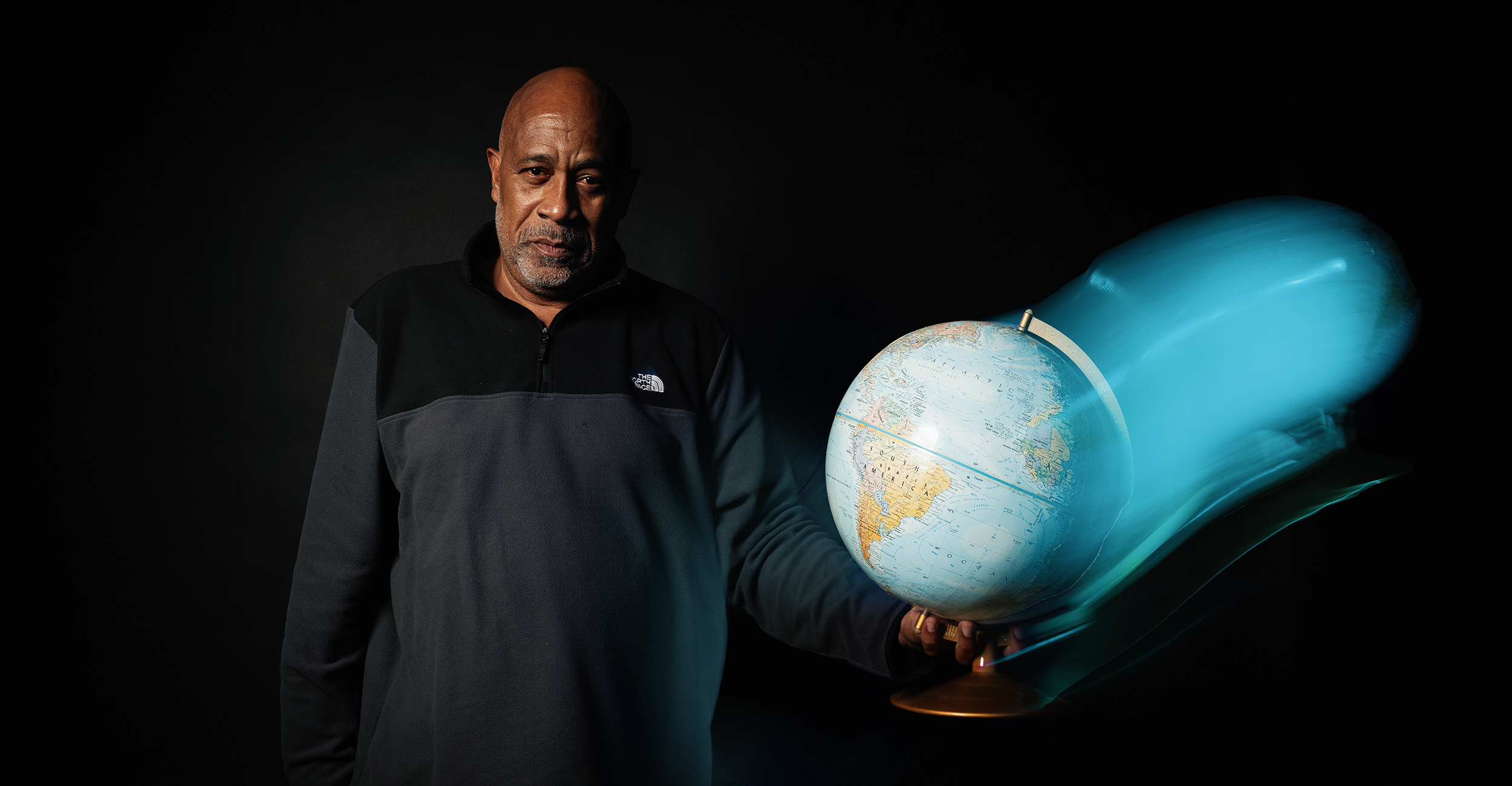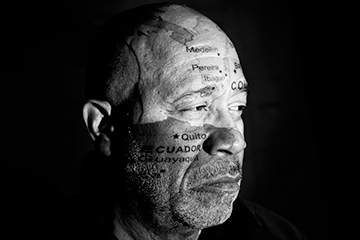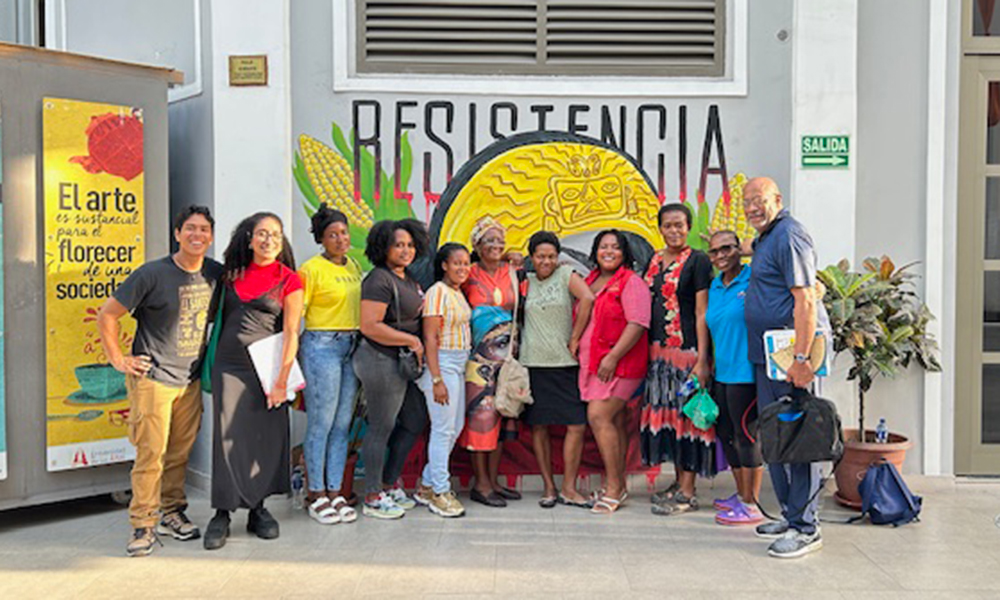
Watters’ project in Ecuador receives recognition from U.S. ambassador, shows students entrepreneurship in action
Thursday, December 19, 2024
Media Contact: Hallie Hart | Communications Coordinator | 405-744-1050 | hallie.hart@okstate.edu
When Dr. Craig Watters isn’t in the middle of teaching a Spears School of Business entrepreneurship course, he puts his lessons into practice.
In fact, he carries them around the world.
During weekends and summers over the past two years, Watters has traveled to Ecuador for the grant-funded project, “Afro-Ecuadorian Cuisine and Cultural Heritage: Stoking Social Collaboration and Community Resilience through Art, Food and Innovation.”
His work, a partnership with Universidad de las Artes and the United States Embassy and Consulate in Ecuador, received recognition Aug. 19 from a distinguished guest. Art Brown, U.S. ambassador to Ecuador, visited the site of the project, which was launched to highlight Afro-Ecuadorian cuisine and music in port city Guayaquil.

“I was thrilled,” Watters said. “This visit shows an awareness of the slave diaspora’s importance to the history and culture of Ecuador. When the communities and people I work with develop their projects into reality — i.e., businesses — it helps them to see and appreciate that they are meaningful to their world.”
As the director of the Riata Institute for Global Social Entrepreneurship, Watters works with marginalized communities around the world to develop entrepreneurial solutions that not only preserve but also complement their cultural customs. As an associate clinical professor and International Entrepreneurship Chair at Oklahoma State University, he weaves his global experiences into his courses, examining the social impact of his subject matter.
“Dr. Watters influenced my perspective of entrepreneurship because he taught me how I can make a difference wherever I am,” said Alyssa Rooks, a student in his social entrepreneurship class. “I find it amazing that Dr. Watters travels to Ecuador so frequently because he taught us so many specific things that have happened through his own experiences. He has shown me the blueprint of what a true entrepreneur looks like and taught me concepts that I will use a lot in the future.”
Watters, who grew up in New Jersey and obtained his Ph.D. in social science from Syracuse University, never left the United States until he entered academia. Since then, his global outreach efforts have carried him from South Africa to Pakistan to Peru. Wherever he goes, he immerses himself in local culture and works toward sustainable goals based on the unique challenges and opportunities in each place.
“I teach entrepreneurship as a repairing of an ecosystem,” Watters said. “Here’s your ecosystem, and your entrepreneurial opportunity is what it takes to help the community reach the level where it wants to be.”
In Ecuador, Afro-Ecuadorians founded settlements beginning in the 1500s after escaping slavery, but discrimination persisted, leading to poverty and other inequities. Recognizing Afro-Ecuadorian culture as a key element of the nation’s overarching culture, Watters is working with the social organization The Karibu Foundation to support Afro-Ecuadorian entrepreneurs turning creative concepts into businesses and projects.

Food plays a central role in this initiative. One goal of the Guayaquil project is to trace the history of contemporary Afro-Ecuadorian dishes to their beginnings in Africa, noting the generational longevity of these recipes.
“Former slaves and all diaspora were innovative in how they kept their ecosystem alive and how they approached life away from their homes,” Watters said. “Their ecosystems were not geographic. The ways they used food, religion, culture, etc. to maintain their ecosystems were all innovative and, hence, entrepreneurial. Their goal was — is — the survival and sustainability of their community culture, and that is how they manifest social entrepreneurship.”
Watters said he has enjoyed sampling the Afro-Ecuadorian cuisine during his trips to Guayaquil. Although Spears Business students have traveled with him to South Africa and Nicaragua, he hasn’t yet led a group to Ecuador, but students eagerly connected with Ecuadorian entrepreneurs on Zoom this semester in his social entrepreneurship course. Student teams created poster projects and delivered virtual presentations to Guayaquil at the end of the semester, contributing to Watters’ initiative while learning how to apply entrepreneurship lessons to the real world.
Watters has inspired Patience Alifo, the graduate assistant for his social entrepreneurship course, to create a social business concept supporting smallholder cocoa farmers in Ecuador.
“Meeting the Ecuadorian entrepreneurs on Zoom was an eye-opening experience, providing insight into the challenges they face and their passion for finding solutions,” Alifo said. “Working with students on their presentations for Guayaquil was equally rewarding, as I saw their enthusiasm in developing ideas to support local youth. Dr. Watters’ efforts in organizing the interaction between students and entrepreneurs were invaluable, helping students better understand the challenges in the region and making this opportunity possible.”
After December finals, Watters is using winter break as a time to resume his travels, launching a new project with Indigenous communities in the Peruvian Amazon before returning to Ecuador from Dec. 19-22.
Because Watters’ international work has shaped his perspective beyond academic theory, he challenges his students to expand their definitions of entrepreneurship. Turning an idea into a profitable startup is a well-known example of entrepreneurship, but Watters also focuses on out-of-the-box ways to improve quality of life.
“Economic development goes beyond money,” Watters said. “A business is one of the results of your exploration, but to actually look at how you can use innovation and an idea to create a solution, it may not be a business at all. You’re still being entrepreneurial and doing something new with new resources, new connections, new ways of thinking about things.”
Visit the Spears Business website to learn more about the Riata Institute for Global Social Entrepreneurship.
